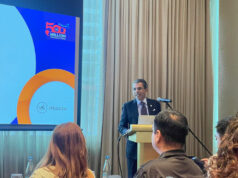THE Japan International Cooperation Agency (JICA) and the Department of Health (DoH) have launched a project to train health professionals in preventing relapses among sufferers of drug dependence to help strengthen treatment and rehabilitation practices.
“JICA will continue to contribute to a drug-free Philippines through this cooperation with DoH. We believe that inclusive development also means enabling vulnerable people like persons who use drugs to integrate themselves back to society,” said JICA Philippines Senior Representative Ayumi Ohshima.
The training for health professionals is part of IntERlaPP (Introducing Evidence-Based Relapse Prevention Program), an ongoing JICA-DoH technical cooperation project that seeks to improve treatment methods in DoH-owned treatment and rehabilitation centers (TRCs).
Addiction specialists, psychologists, social workers and medical doctors are among the participants in the project’s pilot TRCs in Bicutan, Tagaytay, and Dagupan.
The training also includes a new treatment program called Intensive Treatment and Rehabilitation Program for Residential TRCs or INTREPRET which features cognitive behavioral therapy, social support, psycho-education, and self-help as adapted from the Matrix Institute of Addiction in the United States.
Aside from the treatment program, JICA also provided a 1.85 billion yen grant for the construction of a treatment and rehabilitation center.
According to the Dangerous Drug Board (DDB), 50.06% of drug dependents are unemployed.
Meanwhile, the 2018 preliminary study of JICA and DoH on illicit drug use indicates that out of 3,000 recovering drug dependents in TRCs, 33% have zero or negligible income. — Genshen L. Espedido



